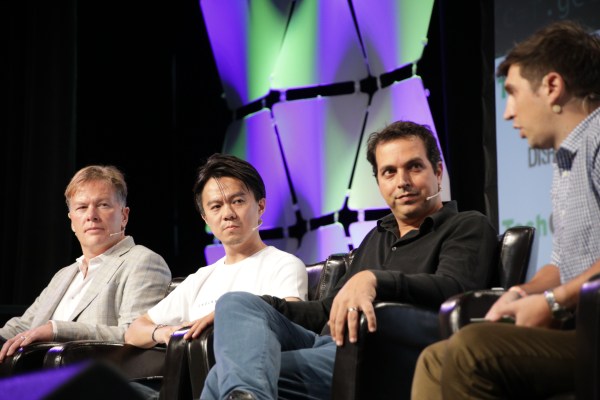It’s impossible to ignore the rush of ICOs in venture capital land. The new fundraising dynamic has helped companies raise more than $1.7 billion this year to date. Huge sums of money tend to catch the attention, but experts in the industry argue that there’s far more to ICOs, also known as token sales, than simply the cash.
Eyal Hertzog, a co-founder of Bancor Network — which raised over $150 million via an ICO in June — told an audience at TechCrunch Disrupt San Francisco that a token sale is a first step to creating new kinds of businesses that can sustain themselves independently, almost like a non-profit.
“A lot of people confuse ICOs with fundraising because both have to do with funding new ventures, however they are very different,” Hertzog explained.
“If you want to compare an ICO to something that we know about, it’s just like someone going to a country and buying the currency of that country in the hope that the economy will grow and the currency will appreciate.
“It’s not like owning a share in the company, its owning a token in a specific economy. I like to call those ICOs online economies [because] this is a model we never had before, we never could have done it,” he added.
That comment was echoed by Omise CEO Jun Hasegawa, whose company raised $25 million to develop a decentralized payment network called Omise Go (OMG) earlier this summer. The network, which can most obviously handle the transfer of money but also other digital assets, is well suited to an ICO because the token — sold in the sale — slots into the business, according to Hasegawa.
“The ICO itself is for us not just for fundraising,” he said. “To validate transactions and secure the network we need to distribute our token to as many [people] as possible. We capped our total [raised in the ICO] and not raise the money we don’t need — we could really have raised $200 million.”
Speaking from an investor perspective, Pantera Capital’s Dan Morehead — whose firm operates a $100 million fund for ICOs — said the implementation and usage of a token is a critical signal to help identify promising investments among a field that is buzzy, speculative and very busy.
“We’re looking for the projects where the token is actually absolutely necessary for the function of the network,” he said.
Finding a business model that utilizes a token in a valuable manner is no easy task. Both ICO companies spent considerable time exploring blockchain and Ethereum technologies long before developing the product vision and the token sale.
“Even before the ICO we hired a lot of people, we’ve been working on this for a long, long time,” Hasegawa explained, adding that Omise had donated to the Ethereum Foundation in January 2016.
Bancor, too, had long held an interest in the space prior to its token sale, which Hertzog believes can build new kinds of services and ecosystems that would not otherwise exist.
“The whole idea is that you can build an ecosystem which cooperates using a specific token which gives the entire ecosystem a network effect like the network effect of bitcoin, like the network effect of Ethereum,” he said.
“The idea is to create those ecosystems that could not have been created without an ecosystem — it enables new kinds of models that weren’t possible before,” Hertzog added.
